100 days of war: a timeline of the Israel-Hamas conflict
Tens of thousands dead and Gaza in ruins as risk of wider escalation continues to grow
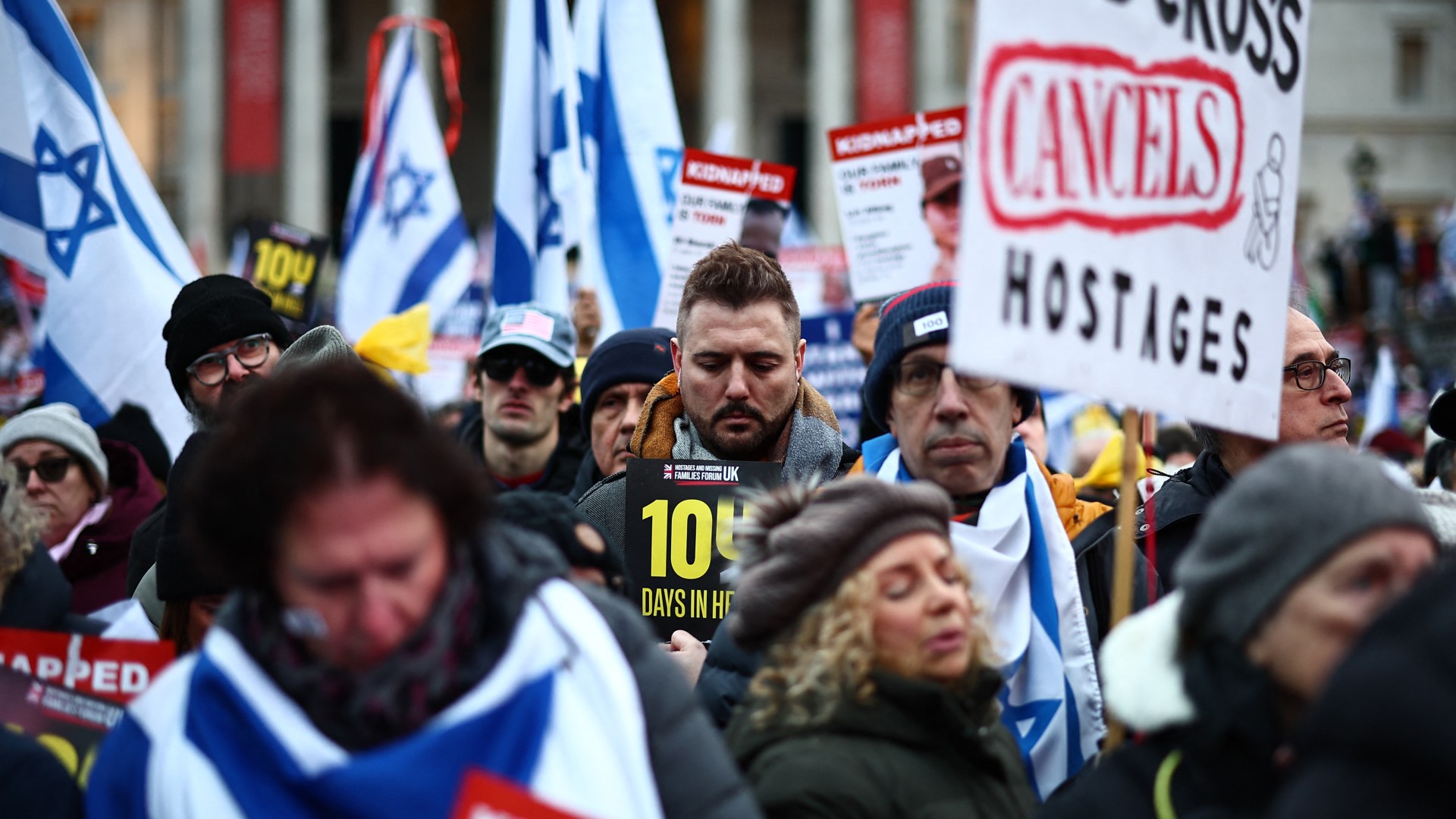
A free daily email with the biggest news stories of the day – and the best features from TheWeek.com
You are now subscribed
Your newsletter sign-up was successful
Prime Minister Benjamin Netanyahu marked 100 days since Hamas launched the deadliest attack in Israel's history by vowing to continue the war in Gaza "until the end, until total victory".
In just over three months of fighting, "tens of thousands of Palestinians have been killed, Gaza lies in ruins and the Middle East is sliding towards a wider, more unpredictable conflict", said Reuters.
As the risk of escalation intensifies, we look at the major milestones in the conflict so far.
The Week
Escape your echo chamber. Get the facts behind the news, plus analysis from multiple perspectives.

Sign up for The Week's Free Newsletters
From our morning news briefing to a weekly Good News Newsletter, get the best of The Week delivered directly to your inbox.
From our morning news briefing to a weekly Good News Newsletter, get the best of The Week delivered directly to your inbox.
7 October 2023
Hamas launches a devastating surprise assault on Israel from the Gaza Strip. Just after dawn, thousands of heavily armed militants storm across the border attacking kibbutzim, military bases and a music festival. Around 1,200 people are killed, most of them civilians, and some 250 others are taken hostage, in what is the deadliest day for Jews since the Holocaust. The unprecedented attack "blindsided Israel and shattered the nation's faith in its leaders", said PBS.
It is a day when "a state, born out of adversity and war only 75 years ago, woke up to what some have since described as a threat to its very existence", reported the BBC's Middle East correspondent Wyre Davies.
Netanyahu says the country is at war and retaliatory air strikes begin, along with a total siege of the Palestinian coastal enclave of Gaza.
13 October
Israel issues a warning for more than one million residents in northern Gaza to leave their homes and move south, in anticipation of a ramping up of air strikes followed by a ground invasion aimed at rooting out and destroying Hamas. Hundreds of thousands of Gazans flee, "beginning a process that will soon uproot nearly the entire population of the Gaza Strip, with families often forced to flee several times as Israeli forces advance", The Hindu reported.
A free daily email with the biggest news stories of the day – and the best features from TheWeek.com
27 October
A week after mounting limited incursions, Israel launches a full ground offensive in Gaza. Troops move into the north of the territory with the aim of capturing the Hamas stronghold of Gaza City.
15 November
After a siege lasting several days, Israeli troops enter Gaza's biggest hospital, Al Shifa, which they claim is the site of a major Hamas base of operations and main access point to the vast network of tunnels that run under the enclave used by the militant group.
Yet as images of doctors working by candlelight to save newborn babies are beamed around the world, columnist Avi Issacharoff in the Tel Aviv newspaper Yedioth Ahronoth said the military operation risks turning "into one of the biggest political and public diplomacy failures Israel has ever known".
21 November
Israel and Hamas announce the first ceasefire of the war: an agreement to pause fighting for four days to exchange women and children held as hostages in Gaza for Palestinian women and teenagers detained or jailed by Israel. The ceasefire would eventually be extended to a week in total, seeing the release of 105 Israeli hostages and about 240 Palestinian detainees.
By "forcing Israel" into talks that led to the release of their own prisoners, Hamas "scored points" among Palestinians and the Arab public as a whole, said Jack Khoury for Haaretz.
Despite calls from many Israelis and the international community, the truce collapses and fighting resumes on 1 December.
15 December
Three Israeli hostages are accidentally killed by the Israeli Defense Forces (IDF). The three soldiers are believed to have escaped captivity, with one of them carrying a white flag, when they were gunned down by their own troops. Their deaths coincided with some of the most significant demonstrations in Israel since the outbreak of the war and pile pressure on Netanyahu to agree a lasting ceasefire.
1 January 2024
Israel signals it will begin pulling some troops out of Gaza, "a move that could pave the way for a new, long-term phase of lower-intensity fighting" against Hamas, Euronews reported.
Israel has come under "increasing pressure from its principal ally, the United States, to move to a more low-intensity war that has fewer civilian casualties", said Al Jazeera, but in the southern Gazan city of Khan Younis, fierce fighting continues as Israel "reaffirms its pledge to press on with the war until its goals have been achieved".
2 January
Israel's assassination of Hamas deputy leader Saleh al-Arouri in Beirut risks drawing in Hezbollah and escalating the conflict. The targeted air strike on Lebanese soil brings the chance of full-blown war between Israel and the Iran-backed militant group "perilously close", said PBS.
-
 Switzerland could vote to cap its population
Switzerland could vote to cap its populationUnder the Radar Swiss People’s Party proposes referendum on radical anti-immigration measure to limit residents to 10 million
-
 Political cartoons for February 15
Political cartoons for February 15Cartoons Sunday's political cartoons include political ventriloquism, Europe in the middle, and more
-
 The broken water companies failing England and Wales
The broken water companies failing England and WalesExplainer With rising bills, deteriorating river health and a lack of investment, regulators face an uphill battle to stabilise the industry
-
 How long can Nato keep Donald Trump happy?
How long can Nato keep Donald Trump happy?Today's Big Question Military alliance pulls out all the stops to woo US president on his peacemaker victory lap
-
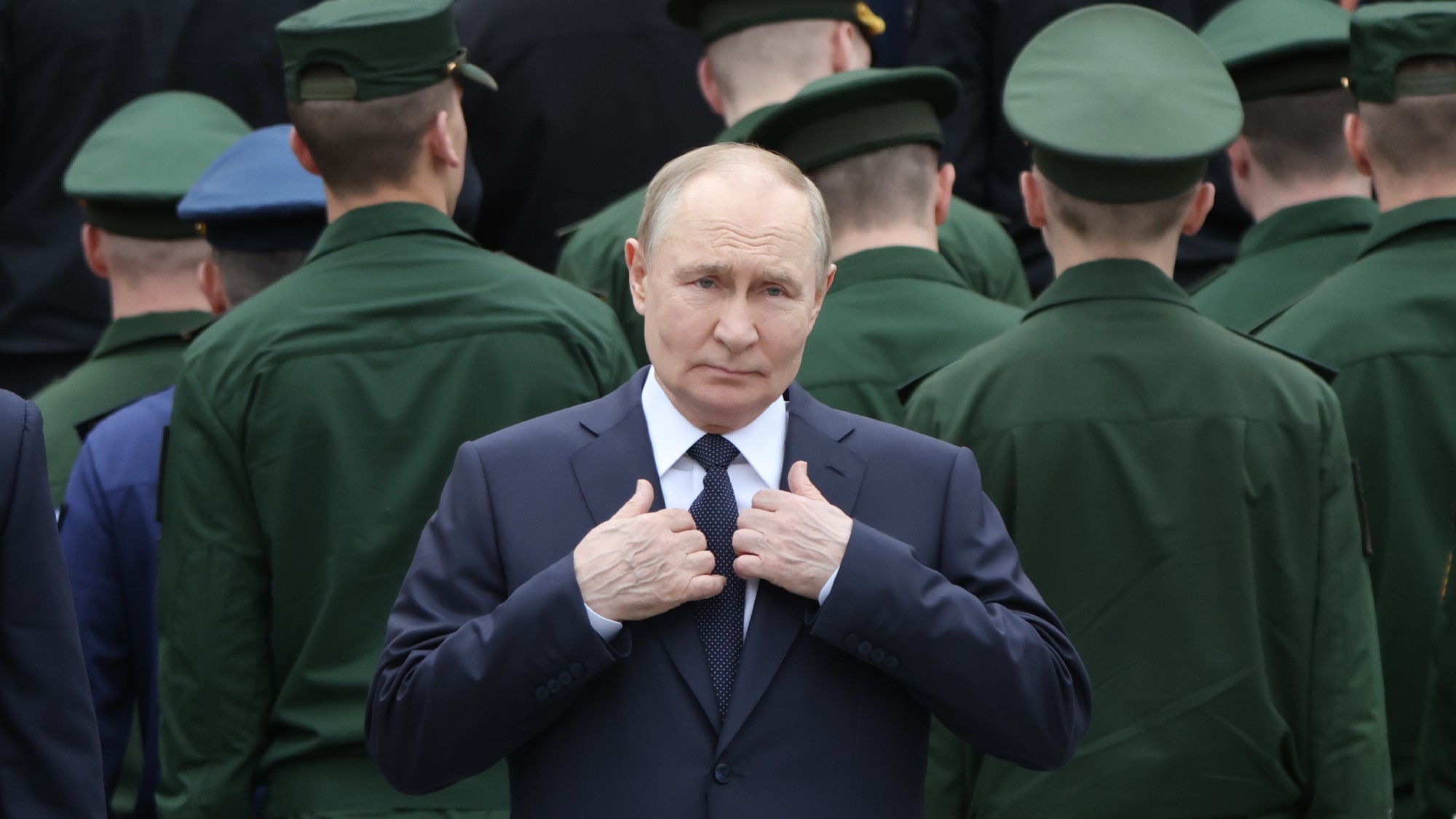 How far would Russia go for Iran?
How far would Russia go for Iran?Today's Big Question US air strikes represent an 'embarrassment, provocation and opportunity' all rolled into one for Vladimir Putin
-
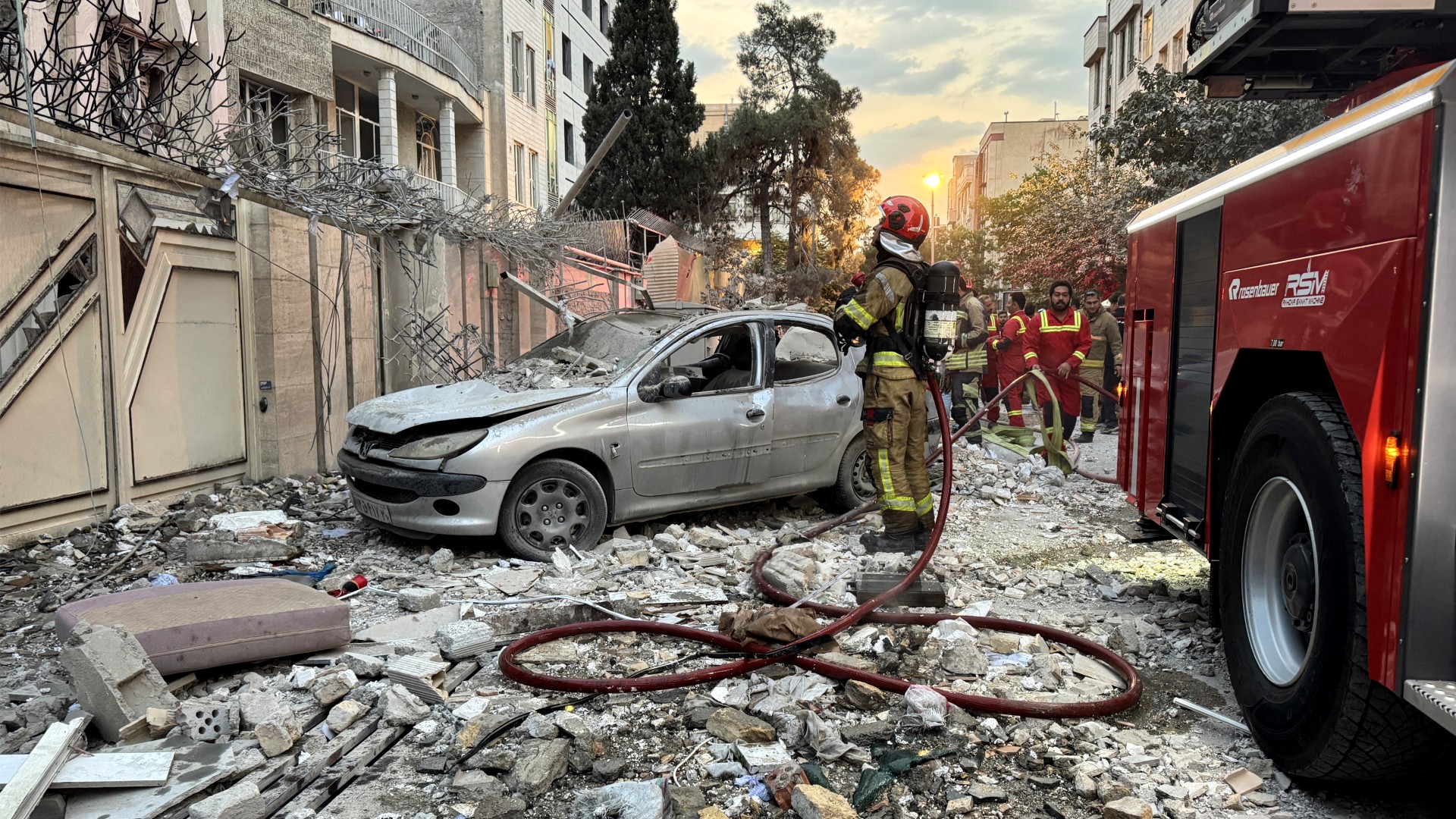 How the Israel-Iran conflict broke out
How the Israel-Iran conflict broke outThe Explainer Israel's strike on Iran's nuclear and missile programmes was years in the planning
-
 Will the UK get involved in the Israel-Iran conflict?
Will the UK get involved in the Israel-Iran conflict?Today's Big Question Keir Starmer is 'walking a tightrope' in helping Israel limit Tehran's nuclear capabilities without being seen to do so
-
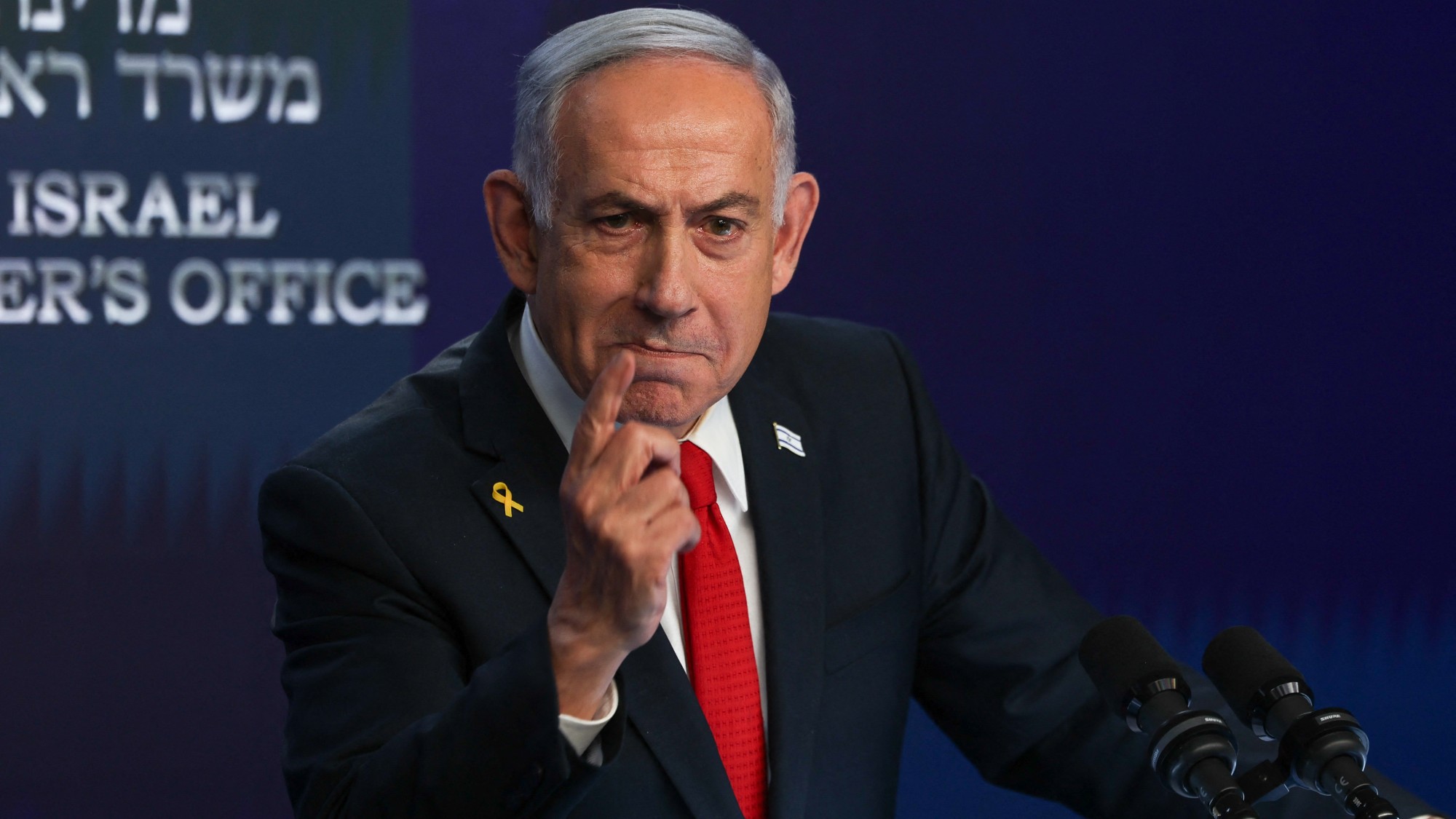 What happens if Israel attacks Iran?
What happens if Israel attacks Iran?TODAY'S BIG QUESTION Israel is 'ready to strike' and Tehran has plans for counterattacks against the US as nuclear talks appear deadlocked
-
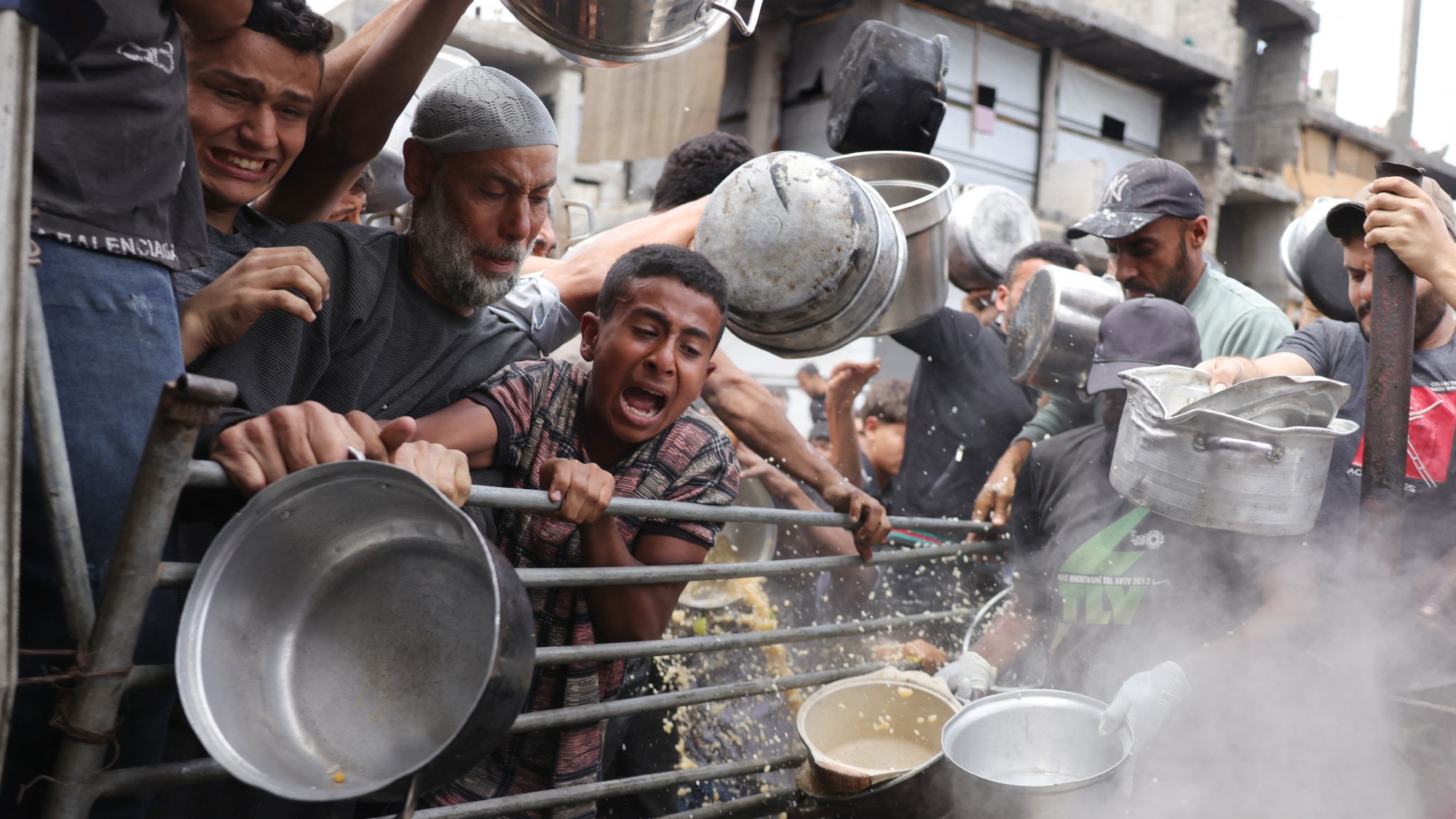 Is Israel finally feeling the heat on Gaza?
Is Israel finally feeling the heat on Gaza?Today's Big Question Benjamin Netanyahu allows aid to resume amid mounting international pressure and growing internal turmoil
-
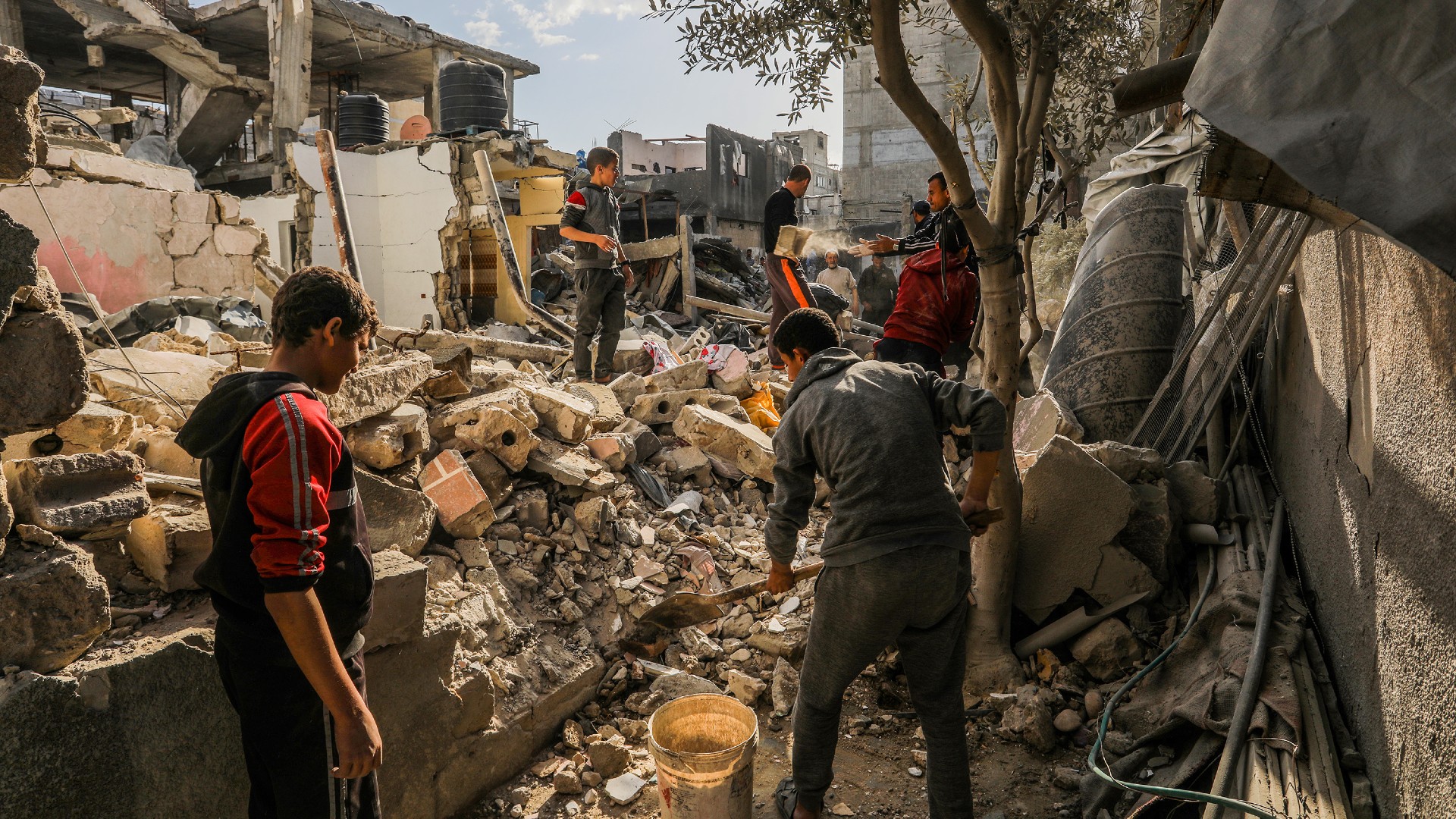 Israeli air strikes in Gaza: why has ceasefire collapsed?
Israeli air strikes in Gaza: why has ceasefire collapsed?Today's Big Question Start of 'broader and more sustained military operation' denounced by domestic groups representing hostage families
-
 Is Gaza ceasefire deal about to fizzle out?
Is Gaza ceasefire deal about to fizzle out?Today's Big Question Israel and Hamas accuse each other of deliberately breaking first phase of the fragile truce, which is set to expire on Saturday